Hiring a roofer? Don’t just go with the first one you find or the cheapest option. Asking the right questions can save you from costly mistakes, poor-quality work, or even legal troubles. Here are five critical questions to ask before signing any contract:
- Do you have a license and insurance?
Confirm they’re legally qualified and insured to protect you from liability. Verify their credentials and ensure their insurance covers general liability and workers’ compensation. - Do you have experience with my type of roof?
Roofs vary – metal, slate, asphalt, or tile. Choose a contractor with proven experience in the specific material and style you need. - What warranties do you provide?
Look for both a manufacturer warranty (materials) and a workmanship warranty (installation). Written warranties are a must. - Can you provide a written estimate and timeline?
A detailed estimate helps avoid surprise costs. A clear timeline sets expectations for project completion. - Can you give me local references?
Speak to past customers to verify their reliability, quality of work, and ability to meet deadlines.
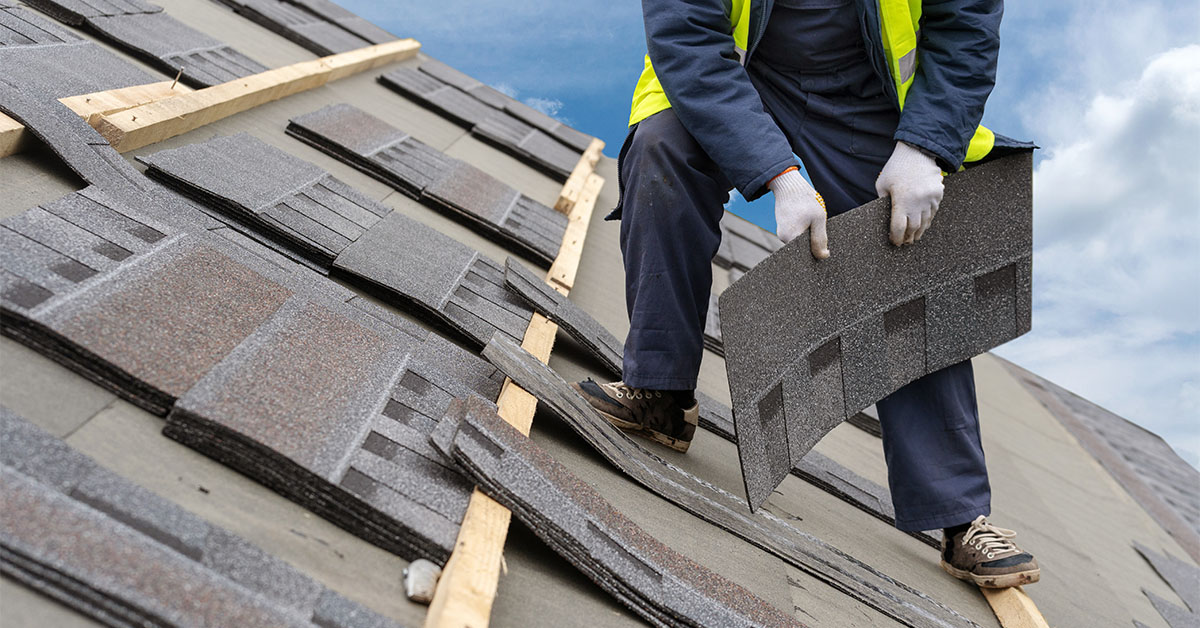
These questions help you choose a roofer who’s reliable, experienced, and transparent – ensuring your roof is installed safely and lasts for years. Keep reading for tips on verifying credentials, warranties, and more.
TIP: 5 Questions You MUST Ask A Roofer
1. Do You Have a License and Insurance?
When hiring a roofing contractor, this should be the very first question you ask. Licensing and insurance are your safety net – they protect you from legal troubles, financial losses, and shoddy work. A contractor without the proper credentials exposes you to unnecessary risks. Always ask for proof, and make sure to verify it.
State requirements for licensing vary significantly. For instance, as of January 2024, states like Florida and California have strict licensing rules, while others, such as Texas, Colorado, and Indiana, don’t require state-level licenses. However, local jurisdictions in these states may have their own rules and requirements.
Licensed contractors typically meet rigorous standards, including exams and training, while registered contractors often only need to provide proof of insurance and pay a fee for tax and compliance purposes.
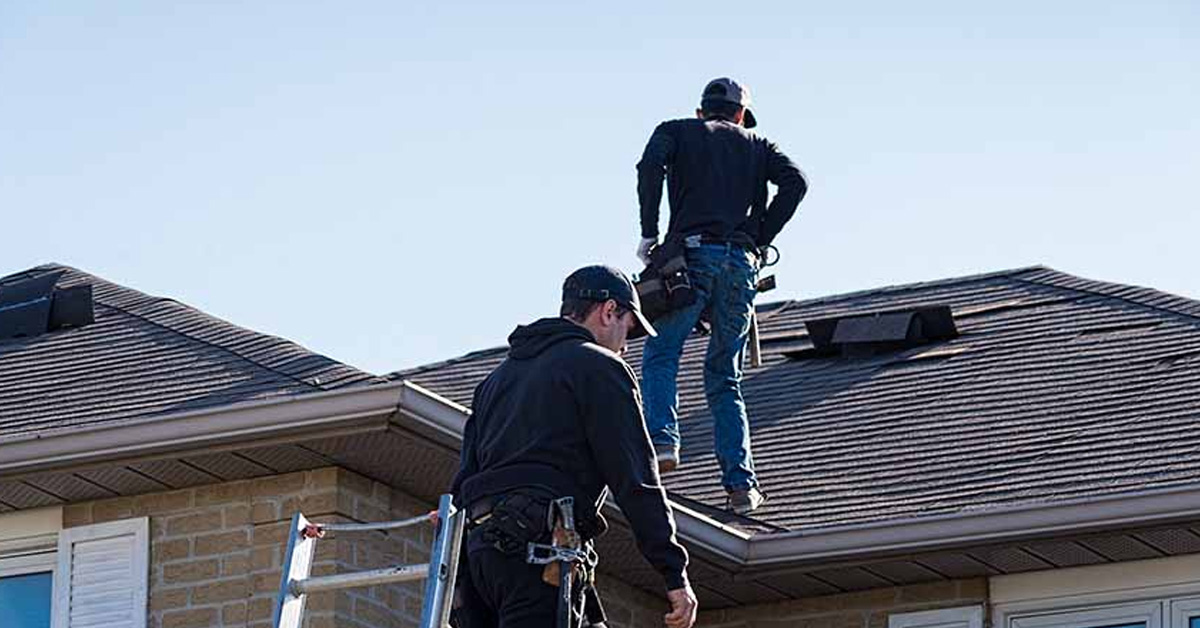
When it comes to insurance, you’ll need to confirm two key types: general liability insurance (which covers property damage and injuries) and workers’ compensation insurance (which covers worker injuries). Both must be current and sufficient for your project. Without workers’ compensation, you could end up responsible for medical expenses if a worker gets injured on your property. Be wary of expired certificates or inadequate coverage – these protections ensure your contractor is serious about professionalism and reliability.
How to Check Their Credentials
Verifying a contractor’s credentials isn’t just about asking for documents; you need to ensure they’re legitimate. Start by requesting the contractor’s license number and a current Certificate of Insurance (COI). Avoid relying on photocopies, as these could be outdated or altered.
To verify licensing, visit your state’s official licensing board website. Most states offer searchable online databases where you can look up contractors by their license number or name. These databases often provide details like license status, expiration dates, disciplinary actions, and any complaints filed against the contractor.
If your state doesn’t require licenses, contact your local building department or city hall to check for local registration rules. Many local governments maintain their own contractor databases, which can confirm whether the contractor is authorized to work in your area.
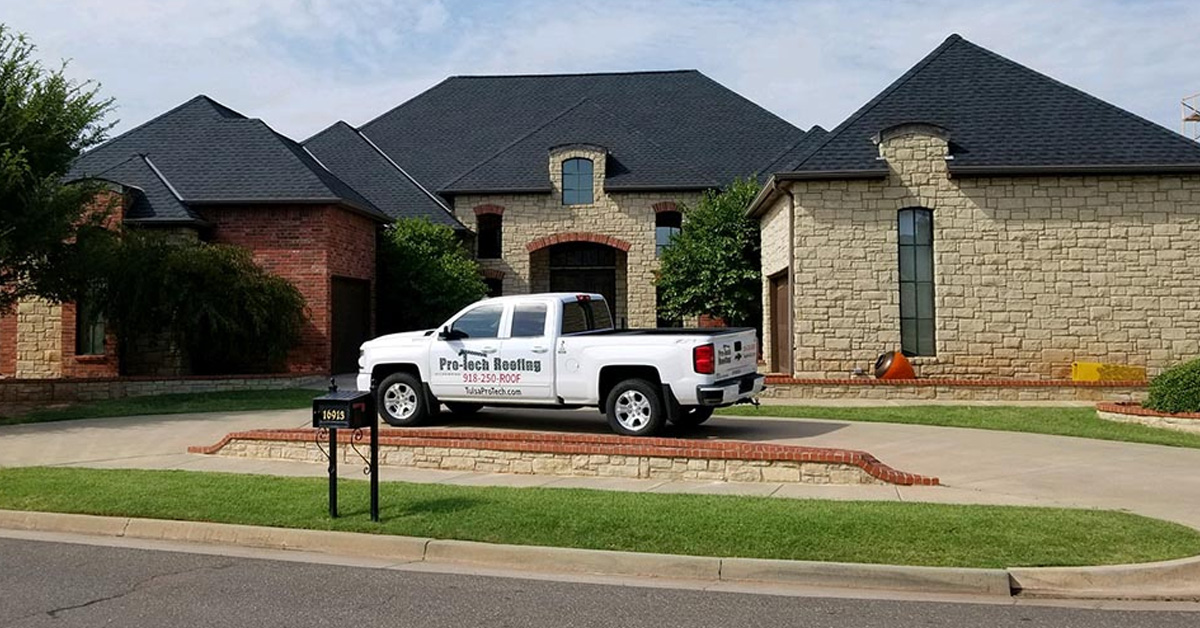
If online resources aren’t available, reach out to your local licensing board or building department directly. They can provide up-to-date information on licensing requirements and confirm whether a contractor is approved to operate in your area.
You can also turn to local roofing associations for verification. These organizations often keep directories of their members and can confirm a contractor’s standing within the industry.
For insurance verification, call the insurance company listed on the COI. Confirm that the policy is active, covers the duration of your project, and includes both general liability and workers’ compensation. The insurance agent can also verify the coverage amounts and ensure the certificate hasn’t been tampered with.
Watch out for these red flags: Contractors who can’t provide a license number on the spot, show expired insurance certificates, claim they "don’t need" licenses or insurance, or try to rush you into starting work before you can verify their credentials. Reputable contractors expect these questions and will provide the necessary documentation without hesitation.
2. Do You Have Experience with My Type of Roof?
Not all roofers are skilled in every type of roofing. A contractor who’s great with asphalt shingles might not have the expertise needed for slate, and someone proficient in metal roofing may struggle with the complexities of historic tile restoration. Each material – whether it’s asphalt, metal, slate, or tile – requires unique techniques and a deep understanding of its characteristics.
Hiring an inexperienced roofer can lead to costly mistakes. For example, improper fastenings on a metal roof can cause structural issues, while poor slate installation might result in water damage. Historic properties present an even greater challenge. These projects often require matching old materials, following preservation guidelines, and working with older construction methods. A contractor unfamiliar with these demands could inadvertently damage irreplaceable materials or violate preservation rules.
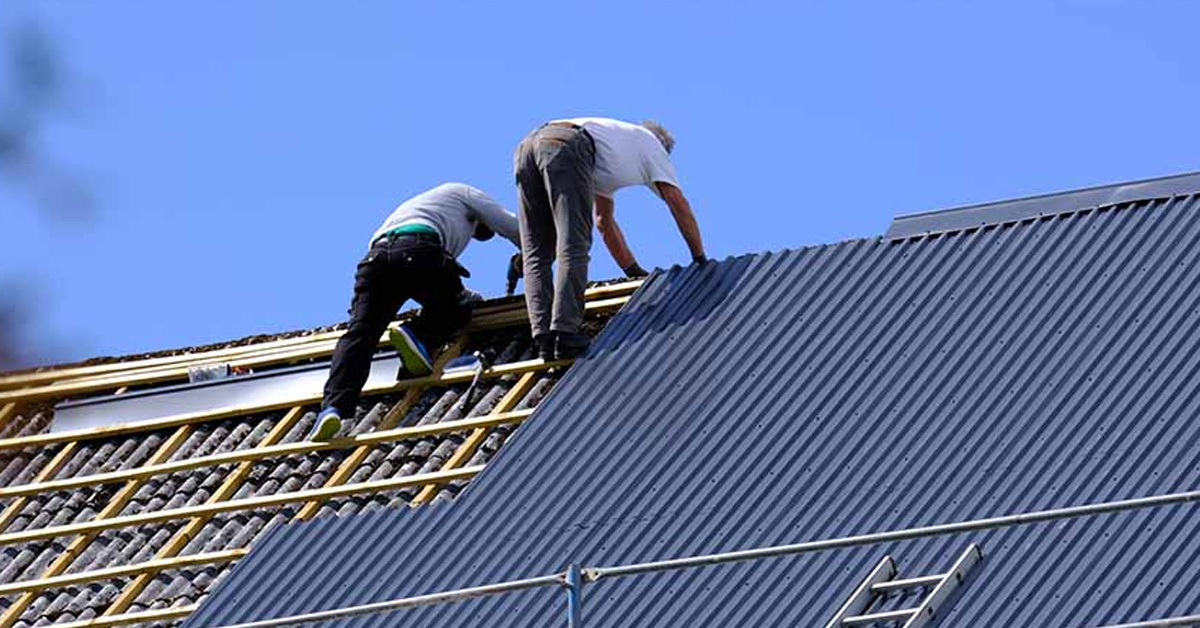
Ask specific questions about their experience. Have they handled projects like yours in the past two years? Do they hold certifications from manufacturers for your roofing type? Certifications often indicate specialized training and can come with better warranties, giving you extra peace of mind.
Don’t settle for vague answers. Push for details about their experience with your roofing material and any unique aspects of your project, such as steep slopes, intricate architectural elements, or historic preservation requirements. This approach helps you gauge whether they truly understand the job’s demands.
How to Review Their Past Work
To see if their claims hold up, take a close look at their previous projects. Ask for a portfolio that includes work similar to what you need. A good contractor will have photo documentation of their completed jobs and will be proud to show off their skills.
Request before-and-after photos of at least three recent projects involving your roofing type. Pay attention to details like clean edges, proper flashing installation, and overall craftsmanship. Look for consistency across multiple projects – this shows they maintain high standards regardless of the job size. If possible, visit some of their recent job sites to see the work in person.
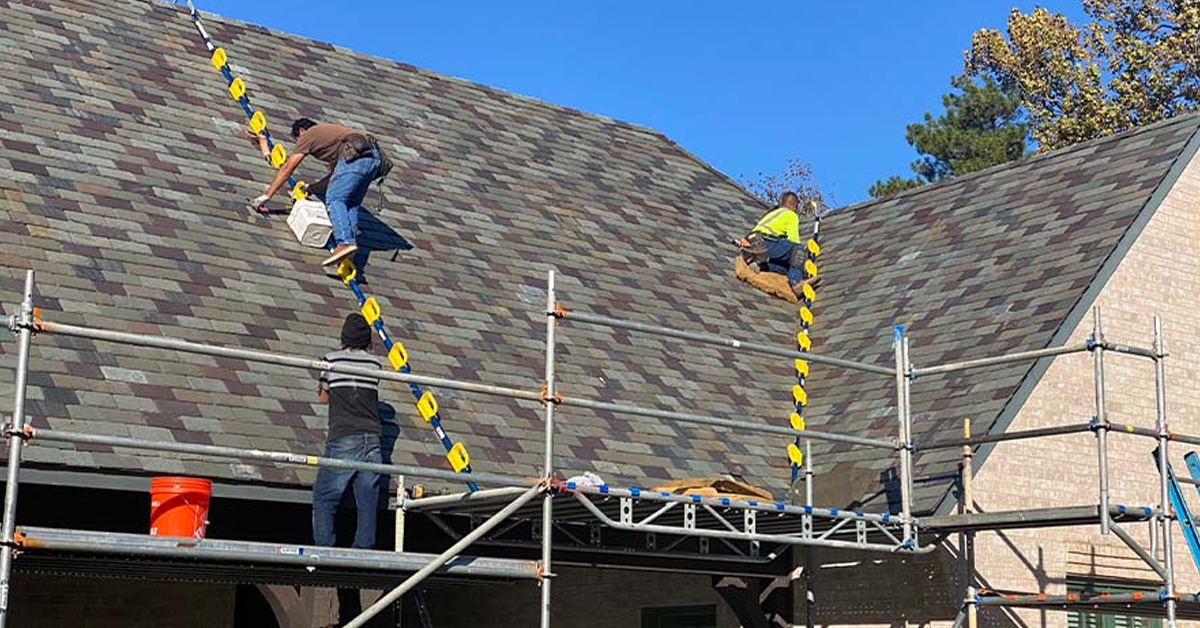
You can also ask for case studies or detailed descriptions of challenging projects they’ve completed. A knowledgeable contractor should be able to explain the techniques they used, the obstacles they faced, and how they overcame them. These conversations can reveal whether they genuinely understand your roofing needs.
Check if they have specialized training or certifications for your roofing material. Manufacturers such as GAF and Owens Corning offer training programs that ensure contractors are up to date on proper installation methods and product specifications.
Be on the lookout for warning signs. Contractors who can’t provide recent examples of similar work, rely on stock photos, or avoid discussing technical details may not have the expertise you need. Reputable roofers are eager to share their experience and explain how they’ll tackle your specific challenges.
3. What Warranties Do You Provide?
A reliable warranty is essential to safeguard your investment. Without proper coverage, repair expenses can spiral out of control. Just as a contractor’s credentials and experience are crucial, solid warranties ensure peace of mind and long-term quality.
Roofing warranties generally fall into two categories: Manufacturer warranties and workmanship warranties. Manufacturer warranties typically cover material defects for 20–50 years. On the other hand, workmanship warranties, which last about 1–10 years, protect against installation errors. For example, if your shingles fail due to a manufacturing defect, the manufacturer handles the replacement. However, if the failure results from improper installation, the contractor’s workmanship warranty comes into play.
Always insist on written warranties from your contractor to cover both material defects and installation issues.

What to Look for in a Warranty
Not all warranties are created equal. Here are some key features to consider when evaluating their quality:
- Coverage Duration: The length of the warranty should align with the type of work performed. A 50-year manufacturer warranty may sound impressive, but if the workmanship warranty is less than two years, it could indicate a lack of confidence in the contractor’s skills.
- Transferability: If you plan to sell your home, transferable warranties can be a big selling point. While many manufacturer warranties automatically transfer to new owners, workmanship warranties may require specific steps or fees to transfer.
- Exclusions and Limitations: Read the fine print carefully. Most warranties won’t cover damage caused by extreme weather (like hurricanes or hail), normal wear and tear, or neglect. Be cautious of warranties with too many exclusions, as they may fail to provide meaningful coverage.
- Claim and Repair Process: Some manufacturers require you to work with certified contractors for warranty claims, while others allow any qualified professional. Knowing who handles repairs and claims upfront can save you time and hassle later.
- Response Time: Quick response times are critical for urgent issues like leaks. Look for warranties that commit to addressing emergency repairs within 24 to 48 hours.
Comparison Table: Manufacturer vs. Workmanship Warranties
| Feature | Manufacturer Warranty | Workmanship Warranty |
|---|---|---|
| Coverage Focus | Material defects and premature failure | Installation errors and labor issues |
| Typical Duration | 20–50 years | 1–10 years (5+ years recommended) |
| Who Provides | Material manufacturer | Roofing contractor |
| Common Exclusions | Installation errors, weather damage, poor maintenance | Material defects, extreme weather, normal wear |
| Transferability | Usually transfers automatically | Often requires notification and fees |
| Claim Process | Through manufacturer or certified contractor | Directly with original contractor |
| Cost Coverage | Materials only (labor may be prorated) | Both materials and labor for covered issues |
sbb-itb-66ccccd
4. Can You Give Me a Written Estimate and Timeline?
After verifying a contractor’s qualifications and experience, the next step is to request a written estimate and timeline. These documents are crucial for ensuring clarity and professionalism throughout the project.
A written estimate eliminates the risk of misunderstandings that can arise from verbal quotes. It provides a detailed breakdown of costs and serves as a financial guide, helping you avoid surprise charges or "scope creep" – where unexpected expenses appear mid-project. Alongside this, a clear timeline allows you to plan around disruptions and holds the contractor accountable for delivering on their promises.
If a contractor hesitates to provide written documentation or pressures you to sign immediately, consider it a red flag. Trustworthy roofers expect you to review and compare estimates carefully. They also understand that factors like weather, permits, or material availability can impact timelines, so they provide realistic schedules that reflect these variables.
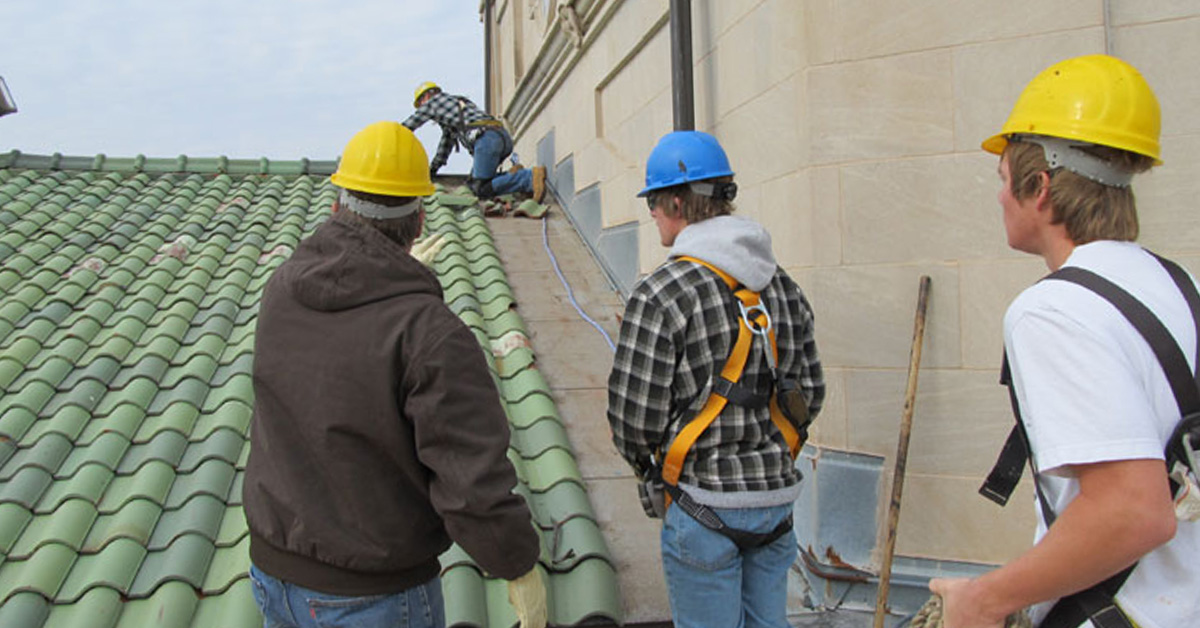
What Should Be in a Professional Estimate
A professional estimate should break down all costs in detail. Labor, which often accounts for 60-70% of the total expense, should be itemized to include tasks like removal, installation, and cleanup. Materials should be clearly specified – for example, “GAF Timberline HDZ architectural shingles in Weathered Wood” – to avoid substitutions or misunderstandings.
Here are some key components to look for:
- Disposal fees: These cover the removal of old roofing materials and typically range from $300 to $800, depending on your location and roof size. Some contractors include this in their base price, while others list it separately.
- Permit costs: Permit fees vary by municipality, usually between $100 and $500. The estimate should state whether these costs are included or if you’ll need to pay them separately. Contractors usually handle the application process.
- Contingency allowances: A smart contractor includes a 10-15% contingency to cover unexpected issues, such as rotted decking or structural damage discovered during the tear-off. This prevents surprise change orders later.
- Payment terms: The estimate should outline a clear payment schedule. Most reputable contractors require a small deposit (10-15%), progress payments tied to specific milestones, and a final payment upon project completion.
Comparison Table: Sample Estimate Breakdown
| Cost Component | Description | Typical Range | Sample Amount |
|---|---|---|---|
| Labor | Tear-off, installation, cleanup | $8,000-$12,000 | $10,500 |
| Materials | Shingles, underlayment, flashing | $6,000-$9,000 | $7,800 |
| Disposal | Dumpster rental and dump fees | $300-$800 | $550 |
| Permits | Building permits and inspections | $100-$500 | $275 |
| Contingency | Unexpected repairs (10-15%) | $1,500-$2,200 | $1,875 |
| Total Project Cost | Complete roof replacement | $15,900-$24,500 | $20,000 |
A typical roof replacement takes 2-5 days. However, reliable contractors leave room for potential delays caused by weather or permits. They’ll coordinate material deliveries, secure permits, and schedule inspections in advance to minimize disruptions. This level of preparation reflects their organizational skills and commitment to completing the job efficiently.
When you receive a thorough estimate and timeline, it not only ensures transparency but also sets the stage for reviewing the contractor’s local references.
5. Can You Give Me Local References?
Once you’ve confirmed a contractor’s credentials, experience, warranties, and estimates, the next step is to check local references. This final step helps you gauge their reliability and professionalism. A trustworthy roofer should have no problem providing contact information for recent customers in the Tulsa area. These references can give you firsthand insights into the contractor’s performance.
Local references are particularly important because they show the contractor’s familiarity with regional building codes, permit requirements, and materials suited for Tulsa’s climate. Make sure the projects they reference are not only recent but also similar to your own. A roofer with a strong track record in Tulsa will likely be better equipped to handle the area’s specific challenges. Plus, recent references reflect their current team, processes, and overall quality.
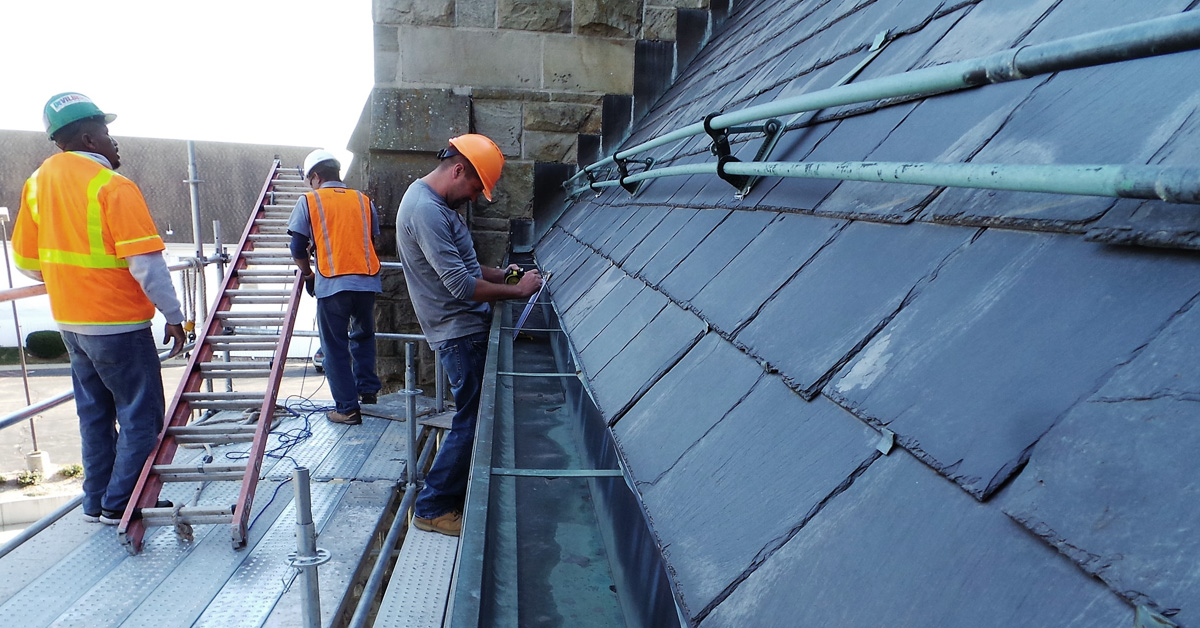
Speaking with past clients also helps you understand how well the contractor meets deadlines, handles unexpected issues, and communicates throughout the project. This is where you can separate seasoned professionals from those who might still be finding their footing.
If your home has a unique roofing style or uses specific materials, ask for references from similar projects. Seeing examples of comparable work – whether through photos or site visits – can give you a clearer idea of what to expect.
Questions to Ask References
When you reach out to references, take a structured approach. Start by confirming basic project details, like when the work was done, the type of roofing installed, and the scope of the project. This ensures you’re speaking with actual customers, not just names on a list.
Here are some key questions to guide your conversation:
- Timeline adherence: "Was your project completed on schedule, or were there delays?" While weather can sometimes cause setbacks, a good contractor will keep you informed about any changes.
- Cost transparency: "Did the final cost match the estimate, or were there unexpected charges?" This will help you understand if the contractor sticks to their written agreements.
- Communication: "How was their communication throughout the project? Did they provide regular updates and explain any issues clearly?" Consistent communication is a sign of professionalism.
- Cleanup process: "How well did they clean up after the job? Did you find any debris left behind?" A well-maintained job site reflects attention to detail.
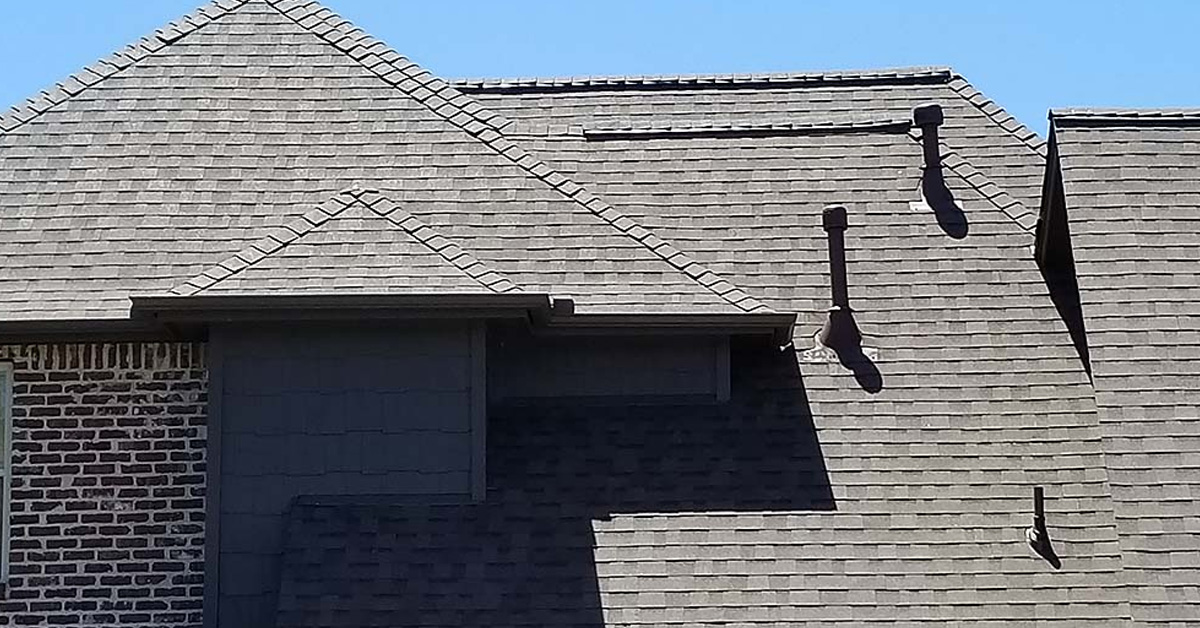
Lastly, ask, "Would you hire this contractor again?" A positive response to this question is one of the strongest endorsements you can get.
It’s also worth asking how the contractor handled any challenges. Roofing projects often encounter unexpected issues, like weather delays or structural surprises. A good question to ask is, "How did they handle unforeseen problems during your project?" This will give you a sense of their problem-solving skills and commitment to customer satisfaction.
Conclusion: Make a Smart Decision for Your Roofing Project
With replacement costs averaging $11,500 and potentially climbing to $80,000 for high-end options like copper, choosing the right roofing contractor is essential to safeguarding your investment. Taking steps like verifying licensing and insurance, checking experience, understanding warranties, reviewing detailed estimates, and following up on references ensures your contractor meets all the necessary legal, technical, and financial standards.
By asking these five key questions, you reduce the risk of costly mistakes. Considering the average roofing company only operates for about four years, it’s important to select seasoned professionals who are likely to honor their warranties. A poor choice could result in repairs averaging $1,150, with major fixes reaching as high as $8,000.
"Hiring the right roofing contractor is a crucial decision that can impact the longevity, quality, and safety of your home." – Smith & Sons Roofing
Asking these questions and checking references can help you spot warning signs like unusually large down payments or bids that seem too good to be true. Reputable contractors welcome informed clients – they know that transparency and trust are the foundation of a strong working relationship.
Every response you receive plays a crucial role in ensuring your roof’s quality, safety, and long-term value. A well-vetted contractor will communicate openly, stick to timelines, deliver excellent workmanship, and stand behind their work. This thoughtful selection process turns what could be an overwhelming task into a smooth and successful project, protecting your home for years to come.
FAQs
Why should I check if a roofer is licensed and insured before hiring them?
Making sure your roofer is licensed and insured isn’t just a formality – it’s a protective step for both you and your property. A valid license shows that the contractor has met the required qualifications and follows local regulations. Meanwhile, insurance shields you from unexpected costs, like property damage or worker injuries, that could occur during the project.
Taking the time to verify these credentials helps you avoid the pitfalls of hiring someone unqualified or unreliable. It ensures you’re working with a professional who prioritizes safety and accountability. Always request proof of both a license and insurance before committing to any agreement.
How can I tell if a roofer has experience with my type of roof?
When speaking with a roofer, find out if they’ve worked with the exact material and brand your roof requires. Ask them to share details about similar projects they’ve completed. Better yet, request photos or references from those jobs to get a clearer picture of their expertise. A seasoned roofer should also be able to discuss the specific challenges of your roof type and explain how they’ve managed those issues successfully in previous projects.
What should I check in a roofing warranty to make sure I’m fully protected?
A solid roofing warranty needs to cover both materials and workmanship. Ideally, you want at least 10 years of coverage for workmanship and 25 years or more for materials. This kind of protection can save you from headaches caused by leaks, installation mistakes, or faulty materials.
Take the time to review the warranty details. It should clearly outline what’s covered, how to file a claim, and any conditions that might void the coverage. For instance, some warranties may require routine maintenance or adherence to specific installation practices. Knowing these terms upfront can help you avoid unexpected problems and keep your roof protected for years to come.
